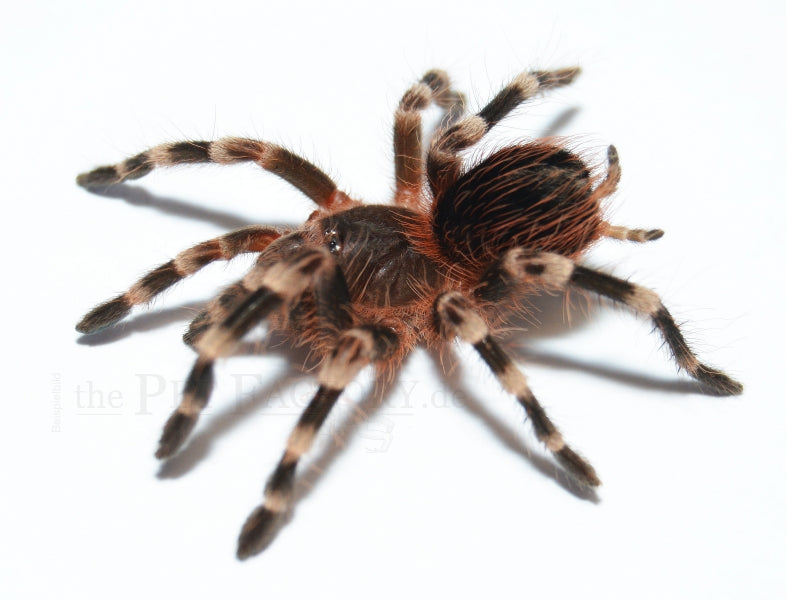
Brazilian White Knee Tarantula | Acanthoscurria geniculata (Med)
Live Animals Are Click and Collect Only
Please note that we do not ship live animals. You can order online and collect in store.
The Brazilian White Knee tarantula, scientifically known as Acanthoscurria geniculata, is a popular pet tarantula among enthusiasts. These tarantulas are native to the forests of Brazil and are known for their striking white stripes on their black legs. They are a medium to large-sized tarantula, with females growing up to 7 inches in legspan. They have a docile temperament and are relatively easy to care for, making them a good choice for first-time tarantula keepers.
Origin: The Brazilian White Knee tarantula is native to the forests of Brazil, specifically the Atlantic rainforest region.
Temperature: The ideal temperature range for the Brazilian White Knee tarantula is between 75-85 degrees Fahrenheit, with a humidity level of 60-70%.
Housing: A 10-gallon tank or terrarium is suitable for one adult tarantula. The enclosure should have plenty of substrate, such as coconut fiber or vermiculite, for burrowing. A hide box and climbing materials should also be provided.
Feeding: The Brazilian White Knee tarantula is a carnivore and feeds primarily on insects such as crickets, mealworms, and roaches. They should be fed once or twice a week, depending on their size and appetite.
Lifespan: The lifespan of the Brazilian White Knee tarantula can vary depending on the gender and care provided. Males typically live for 3-4 years, while females can live up to 20 years in captivity.
Behavior and Personality: The Brazilian White Knee tarantula is generally docile and calm, making them a great choice for first-time tarantula keepers. They are not known to be aggressive, but may become defensive if they feel threatened. Like most tarantulas, they are primarily nocturnal and spend most of their time hiding in their burrow or hide box.
Please note: We don't ship live animals. You can order online and choose click and collect and we will hold it for you.















